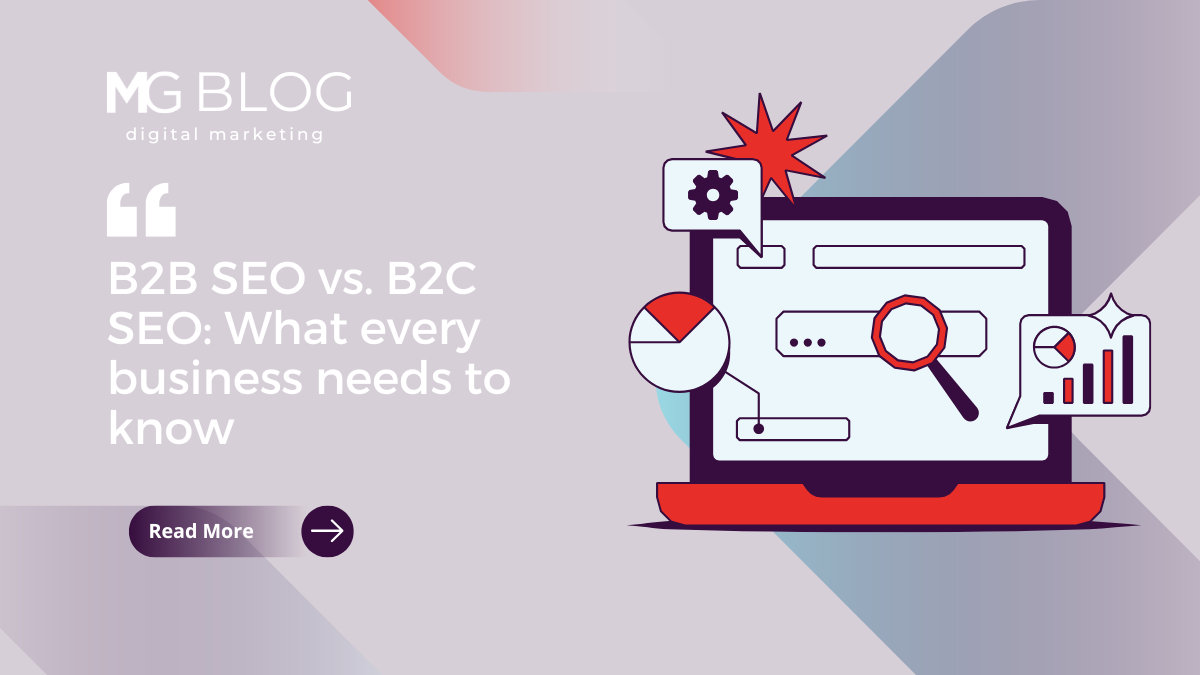
When most people think about SEO, they often picture consumer-focused strategies—think product pages, influencer-driven content, or blog posts targeting mass-market appeal. But B2B SEO plays by a different set of rules. If your business is trying to attract high-value leads rather than quick online purchases, understanding the nuances of B2B search optimization is critical to your success.
Whether you’re working with an SEO agency or building your strategy in-house, knowing how B2B SEO differs from its B2C counterpart can make or break your marketing ROI. Let’s explore the key differences and how to tailor your approach for maximum impact.
1. Longer sales cycles require a strategic content journey
Unlike B2C purchases, which are often impulsive and transactional, B2B buying decisions involve multiple stakeholders, approvals, and research phases. That means your SEO strategy must support long sales cycles.
B2B SEO success hinges on mapping content to every stage of the funnel—from awareness to decision. Top-of-funnel blog posts, mid-funnel case studies, and bottom-funnel product comparison pages all play a role in guiding prospects through the buyer journey.
- Tip: Build pillar pages and internal link structures to nurture leads from educational content to high-intent landing pages.
2. Keyword strategies are more niche and specific
In B2C SEO, broad keywords like “running shoes” or “smartphones” may be the bread and butter. In contrast, B2B search optimization often revolves around highly specific, low-volume, and high-intent keywords like:
- “Cloud-based ERP solutions for manufacturers”
- “ISO 27001 compliance software for financial institutions”
- “AI-powered insurance claims automation tools”
These keywords may not generate massive search volumes, but they attract qualified leads who are much more likely to convert.
An experienced SEO agency will understand how to identify and prioritize these niche opportunities—often uncovering keyword goldmines your competitors are missing. They’ll also know how to adjust keyword strategies in response to emerging SEO trends, including the rise in generative engine optimization (GEO).
3. Search intent matters more than search volume
In B2B SEO, it’s not about chasing the highest-volume keywords—it’s about matching content to intent. Is your prospect looking to research solutions, compare vendors, justify ROI, or make a shortlist?
Each keyword should align with a specific intent:
- Informational: “What is a CNAPP platform?”
- Navigational: “Microsoft CNAPP demo”
- Transactional: “Best CNAPP vendor for enterprises”
The better your content aligns with the intent behind the search query, the more likely you are to engage and convert decision-makers.
4. Thought leadership and trust are essential ranking signals
B2C SEO can get by on product reviews and user-generated content. But in the B2B world, trust and authority are everything.
Google rewards B2B search optimization efforts that demonstrate E-E-A-T—which stands for experience, expertise, authoritativeness, and trustworthiness. This means that publishing in-depth thought leadership, technical whitepapers, and expert-authored content is not just good for brand building—it’s also great for SEO.
If you’re partnering with an SEO agency, make sure they understand how to blend technical optimization with high-value content that builds credibility in your industry.
5. Conversion goals are more complex (and less immediate)
A B2C conversion might mean a $40 online purchase. A B2B conversion could be a form fill that leads to a $400,000 deal six months later.
That’s why B2B SEO strategies must be designed to drive micro-conversions—such as newsletter signups, demo requests, and whitepaper downloads—that eventually nurture high-value leads.
Tracking these conversions and attributing them correctly is a challenge, which is why working with a specialized SEO agency that understands the B2B funnel can be a game-changer.
Final thoughts: Invest in B2B SEO that reflects how your buyers think
B2B search optimization isn’t just a subset of traditional SEO—it’s a discipline of its own. From longer buying cycles and niche keywords to intent-driven content and complex conversion paths, B2B marketers must take a fundamentally different approach.
If you’re serious about driving qualified leads and building sustainable growth, consider partnering with an SEO agency that specializes in B2B. The right strategy can transform your organic traffic into a predictable pipeline of high-value prospects.
Whether you’re refining your keyword strategy or launching a full-scale content overhaul, we can help. Let’s talk about how to build a search optimization plan that aligns with your business goals. Reach out to our MG Digital services team to get started.



